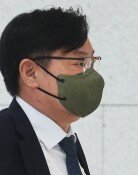The suspension of military exercises will be a bad precedent
The suspension of military exercises will be a bad precedent
Posted June. 16, 2018 09:16,
Updated June. 16, 2018 10:22
With U.S. President Donald Trump announcing the freeze of U.S. military “war games” with South Korea after the June 12 U.S.-North Korea summit, the two allies have officially launched discussions. South Korean President Moon Jae-in has instructed his aides to closely coordinate with the United States, saying that “the country needs to flexibly change its military pressure against the North.” The U.S. Department of Defense also said that it was working to provide “options that meet Trump’s intent.” Following the negotiations, it is likely that a decision will be soon announced about whether to suspend or postpone the Ulchi Freedom Guardian (UFG) scheduled for this August.
The possible suspension of joint military exercises was unilaterally announced by President Trump, but now seems to be discussed with Seoul. There will be much to be discussed including the subject and period of a possible suspension, but it should not be a process that the two sides just have follow-up discussions on an issue that has been already decided upon. It is already problematic that military exercises that are defensive in nature have become a topic of negotiation, but another bad precedent can be made if a decision is reached without North Korea showing actual progress in denuclearization. Therefore, detailed security measures must be first prepared before the decision is announced. In particular, as Trump said the suspension would be considered “while negotiations between the two countries continue,” the South Korean military must maintain a posture to resume exercises at any time, and the authorities must also come up with measures to fill a security vacuum, which will arise in the case of a prolonged suspension.
Still, it is worrisome that a suspension can lead to the allies’ weakened security posture against the North. The key of the joint military drills is the deployment of reinforcements in case of emergency, so the suspension will certainly weaken the allies’ countering power, possibly causing some to argue for the withdrawal of U.S. troops. A senior presidential official stressed Friday that the issue of U.S. forces stationed in South Korea is an “issue between Seoul and Washington, and thus should not be a topic for negotiations between North Korea and the United States.” However, no one can guarantee that President Trump, who thinks of an alliance as a transaction, will make another unilateral decision on the suspension of joint military exercises.
Under such circumstances, North Korea is already using current developments in its offensive towards the South, as evidenced by the North’s delegate taking a high-handed attitude during the recent inter-Korean military talks. The current situation reminds us of the position of South Korea where it cannot sit idle, only trusting the United States in an asymmetric alliance where it highly depends on Washington for military strength. Some are even arguing that the government’s original plan to expand the national defense should be scaled down in line with the peaceful mood on the Korean Peninsula. Such an idea is extremely dangerous. We must not forget that now is the time to strive to solidify our national defense.
Headline News
- Med professors announce intention to leave hospitals starting Thursday
- Bridge honoring Sgt. Moon Jae-sik unveiled in Pennsylvania
- Chief of Staff Chung tells presidential secretaries to stay away from politics
- US FTC bans noncompete agreements
- N. Korea launches cyberattacks on S. Korea's defense companies







